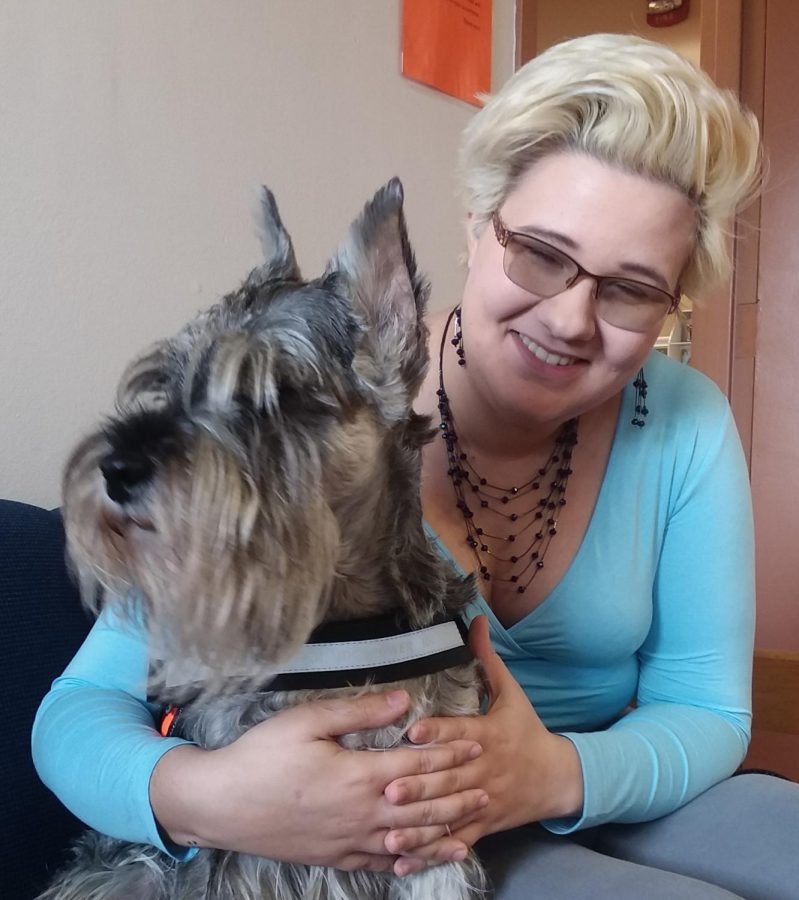Who Let the Dogs Out … On Campus?
Sierra Wilson with her dog Jade, a Standard Schnauzer service animal.
November 27, 2018
Service animals are a reality today. They can be spotted with their special needs owners walking down sidewalks, in restaurants, and even at concerts and sporting events. In the interest of these special critters and the owners that love them, we should know how to act around them so their work isn’t impeded.
Sierra Wilson is a hearing impaired student at Allen Community College and lives on the Iola Campus with her therapy dog, Jade. Jade notifies Wilson when something is happening and Wilson can’t hear it, such as someone knocking on her dorm room door or a fire alarm going off when Wilson may not be wearing her hearing aids. Jade also helps Wilson with the anxiety that comes from not being able to hear.
Jade is registered as an emotional support animal and is protected under the Americans with Disabilities Act. However, getting permission to allow her on campus was a process. Wilson got permission two weeks before the semester started from Director of Student Life and Housing Ryan Bilderback, who said the dog was permitted as long it was properly vaccinated and Wilson’s roommate was not allergic.
Therapy animals can help with depression, comforting their owner and giving the owner motivation to get up every morning to care for the pet. They calm people with anxiety.
These animals can be specially trained to perform certain tasks. The options and training needed increase when one needs a certified service animal, such as those with schizophrenia. Schizophrenics can use their pets to tell them if something they hear or see is real or imagined.
Although taking a service animal in public can be difficult, Wilson stated that she doesn’t have that issue. By law, all therapy and service animals are allowed into public places. However, some owners have to deal with other people trying to pet their animal, or strangers might judge why the owner needs the animal and if their claim is legitimate.
Unfortunately, there are cases of people pretending to have a certified service animal and damaging an establishment, which leads to an actual disabled person with their service animal receiving rude and even angry reactions from those in that establishment.
As a rule, if an animal is in public with a labeled vest, don’t ask to pet the animal. The animal is working and does not need distractions. The owner gives the animal all the love and attention it needs.
Just as therapists keep their home lives away from work, so do therapy animals.






